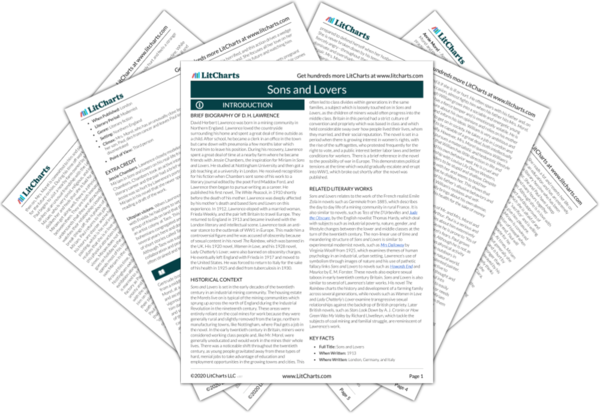LitCharts assigns a color and icon to each theme in Sons and Lovers, which you can use to track the themes throughout the work.
Family, Psychology, and the Oedipus Complex
Christianity, Propriety, and Physicality
Women’s Work and Women’s Rights
Death, Grief, and Self-Destruction
